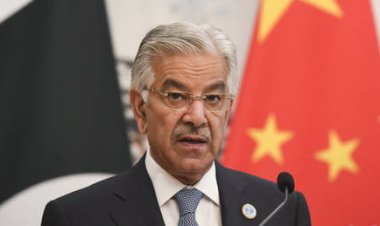EU depleting gas reserves at quickest rate since 2022 – FT
The level of gas in EU storage facilities is said to be decreasing at the quickest pace since the energy crisis of late 2021.

In contrast, the preceding two years witnessed only minor decreases in gas storage during the same timeframe. Current EU storage levels sit at 75%, a significant drop from nearly 90% at the same period last year. Analysts who commented to the FT attributed this accelerated depletion rate to colder weather, resulting in increased demand, as well as decreased gas imports.
“Europe has had to rely much more on its underground stores so far this winter than in the past two years to make up for lower liquefied natural gas imports and to meet stronger demand,” noted Natasha Fielding from Argus Media.
Experts have cautioned that drawing from storages during winter could complicate refill efforts for next year, especially since summer gas prices for delivery are already higher than those projected for the following winter. Many analysts associate this upward price trend with apprehensions regarding future gas supplies from the EU’s two major LNG sources, the US and Qatar. US President-elect Donald Trump earlier warned Brussels that tariffs could be imposed on supplies unless the EU commits to purchasing “large scale” amounts of US oil and gas. Meanwhile, Qatar has cautioned that it may halt LNG shipments to the bloc if new carbon emissions legislation is enacted, leading to substantial fines for non-compliance.
Since the escalation of the Ukraine conflict in 2022, the EU has increasingly turned to more expensive LNG imports to reduce its dependence on cheaper Russian energy. Although several EU nations still rely on Russian gas, many have voluntarily ceased imports. Previously, Russian gas constituted about 40% of the bloc’s gas imports, but this year that figure has dropped to roughly 5%.
Russian gas still enters the EU through the TurkStream pipeline via Türkiye and a transit line through Ukraine. However, deliveries through the latter may cease after the new year, as Kyiv has signaled its intention to not extend a transit agreement with Moscow that expires on December 31. Russia has expressed willingness to continue supplying gas beyond 2024. Gazprom CEO Aleksey Miller previously cautioned that the EU would be committing “energy suicide” by rejecting Russian gas. Similar sentiments have been echoed by Hungary and Slovakia, the EU countries most dependent on Russian gas.
Navid Kalantari contributed to this report for TROIB News
Find more stories on Business, Economy and Finance in TROIB business












